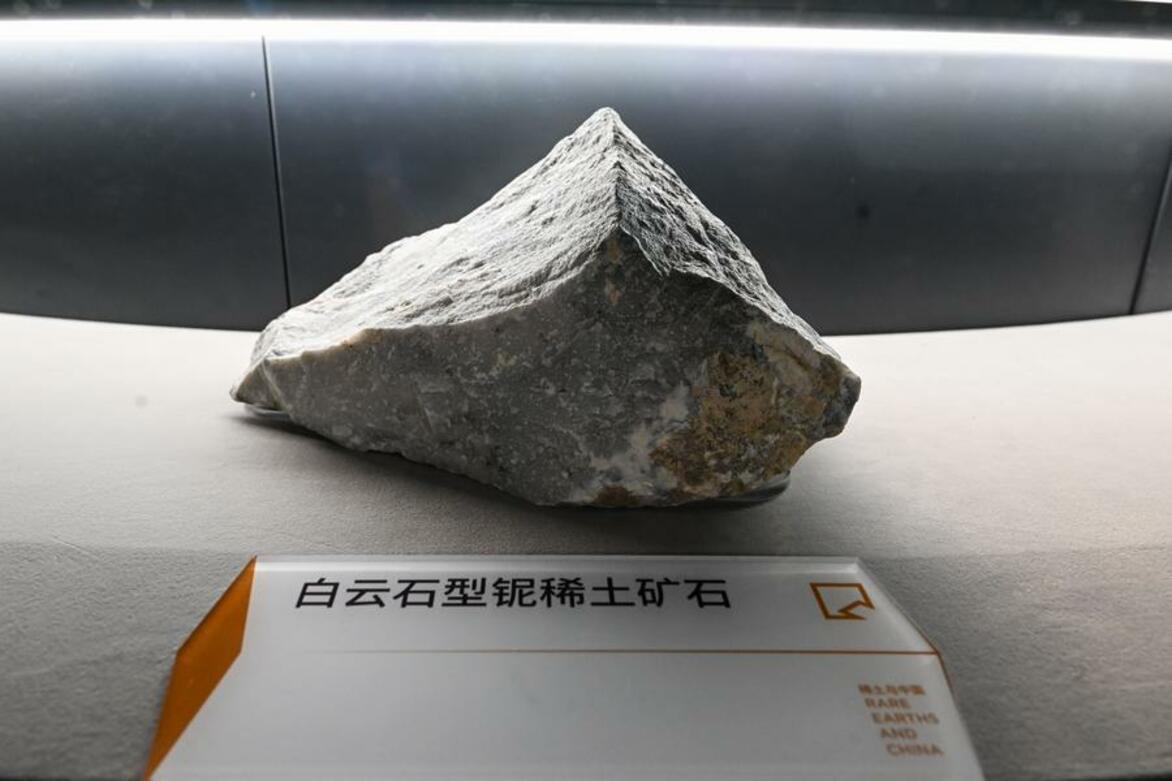Xinhua Commentary: China's rare earth regulations not "tactical countermeasure"
Xinhua
09 Jun 2025

China's export controls on certain rare earth-related items are not trade barriers targeting specific countries, but a responsible measure to uphold international non-proliferation obligations.
BEIJING, June 9 (Xinhua) -- China's recent announcement of new regulations to strengthen export control measures on certain rare earth-related items is a measure driven by its domestic industrial sustainable development needs. The move aligns with international management standards and reflects China's responsibilities as a major country -- and is not, as some claim, a so-called "tactical countermeasure."
This step also underscores China's sense of responsibility as a key global supplier of critical minerals and its commitment to advancing shared global development.
China's export controls on certain rare earth-related items are not trade barriers targeting specific countries, but a responsible measure to uphold international non-proliferation obligations. Implemented under the principle of non-discrimination, these controls reflect China's commitment to maintaining global peace and regional stability.
Rare earth elements are not only crucial for manufacturing new energy vehicles, consumer electronics and wind turbines, but also play an indispensable role in advanced military equipment such as fighter jets and nuclear facilities. Preventing such strategic resources from being used to undermine international peace and security is a shared non-proliferation obligation for all nations.
In fact, export controls on dual-use strategic materials are an internationally accepted practice and a legitimate right of sovereign states to safeguard national security and fulfill international responsibilities.
What is more, China's new rare earth regulations reflect necessary industrial reforms. In the past, extensive and unregulated development led to the undervaluation of resources and severe ecological damage. This unsustainable model not only depleted the country's natural resource endowment but also posed risks to the long-term stability of global industrial supply chains.
China's new moves, including new regulations on rare earth administration announced in 2024, have demonstrated China's commitment to transitioning toward high-quality and sustainable development. These measures not only safeguard the domestic ecosystem but also ensure more reliable and transparent rare earth supplies for global industrial chains. A well-regulated and eco-friendly Chinese rare earth industry will ultimately benefit global users.
Despite misleading hype from some Western media, China's objective is to regulate exports and not ban them, and to facilitate trade that adheres to established regulations rather than disrupt normal commercial activity. For example, in response to concerns raised by the European Union (EU) and others recently, China's Minister of Commerce Wang Wentao assured the EU side that China is willing to establish a green channel for eligible applications and expedite the approval process. Relevant work teams have also been instructed to maintain timely communication on this matter.
These constructive responses and practical adjustments demonstrate China's sincere commitment to working with its partners to minimize the impact of regulatory measures on legitimate trade.
As China-U.S. economic and trade frictions deepen and critical technology sectors face unjustified restrictions, China's efforts to strengthen the management of its strategic resources have often become subject to speculation. However, viewing these measures as mere short-term bargaining tools underestimates the strategic depth of China's policy decisions.
China's rare earth regulations are a prudent decision grounded in widely accepted international norms, the country's need for sustainable industrial development, and its responsibilities as a major country.
Rather than succumbing to anxiety over "decoupling" or misconceptions of rare earths as a "strategic weapon," it would be more constructive for the West to focus on understanding and adapting to China's new measures.
Only through candid dialogue and cooperation can all parties help ensure that this critical resource continues to support global technological advancement and the green transition within a peaceful and sustainable framework.
